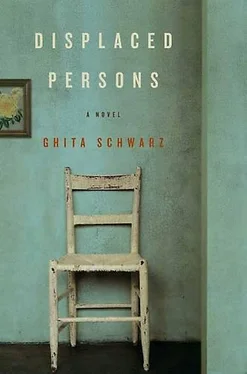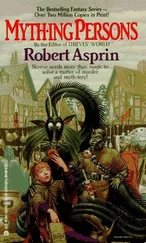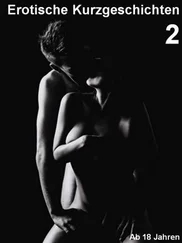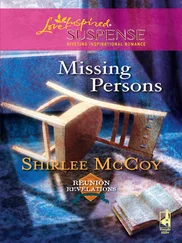When she gave away her ring to the smuggler who took them across the border into Germany, she gave away her last clear picture of her love, the image she had of him twirling it on her finger, round and round, as she became too thin to wear it securely. Before then, she had sold a watch stolen from her father when she and Moshe had run away, she had traded the leather finery hidden in the house by her mother, but she had not let the ring leave her body. She had kept it close to her chest, under her clothing, after the news had come from a neighbor’s wife that Moshe, kidnapped into the Russian army, had disappeared, after the baby, born prematurely with the shock of her grief, had withered from dysentery, dying from the sickness in her milk, after her flesh had vanished from a hunger so strong it crushed the grief. Now that her grief was back, the ring was no longer with her. She did not need it. It was the last thing she had from Moshe, yet when the time came she had not hesitated to rid herself of it. Some part of her thought that if she gave it up, she would find him alive. Some part of her wanted to blot out any piece of him that remained in the physical world in order to keep him to herself, inside her, whole.
They were all in her now. She got up from her cooking twice, leaving a pot simmering as she went to her room to read Bluma’s letter again. Already she knew it by heart, and still it said the same thing, over and over again. I have heard nothing . Fela’s letter had been posted by the British soldiers, thanks to Pavel’s dealings. Bluma had received it, and she had received no other.
That night Fela could not play cards. Chaim was away, on an outing to the mountains for the refugee boys. Fela sat silently with Pavel in the garden, tapping her coffee cup. Then she got up, went into the kitchen. In the early weeks in the house she had found a lightweight cigar box. The box held eighteen loose cigarettes, not so stale that they could not be enjoyed. She returned to the garden with the box.
Let us try them, she said to Pavel.
They passed the first one back and forth, touching each other lightly as their arms stretched across the little table. They were used to American cigarettes now, bought on the black market, but these had a softer taste, unfiltered but still not as strong. They lingered over the one between them, taking care not to let any tobacco fall out from the crumbling paper.
After a few moments she let her knuckles graze his palm and then his forearm, bare but for the blue mark above the wrist. He moved his hand to her hair, as if to smooth it. But then he moved it away and instead touched her face, his fingertips at her cheekbones and lips. She felt a familiar chill inside her ribs but said nothing, looked down, then got up to clear the coffee cups from the garden table. At the door to the kitchen, saucers in hand, she turned.
Come with me, she said.
He followed her into the kitchen, stood away from her as she washed the cups. Then they went into his bedroom and slipped under the blankets fully clothed, undressing each other lying down, without looking.
FELA AND PAVEL WALKED arm in arm near the port. They had taken the train to the Bremen zone, where American soldiers stood on the docks to monitor shipments of coffee, flour, sugar, canned meats, used clothing, new wool, tin appliances, metal pans, medical bandages, syringes, pills, and serums. From Bremen a first wave of refugees had already sailed for Australia.
Australia! Pavel had said. These people, no patience! We, my friend-he squeezed Fela’s arm-we will wait for America.
She did not answer. The Americans did not give visas. But Pavel was convinced. Americans have know-how, he would say. They respect it in others.
But she saw differently. In the Bremen zone the young American soldiers walked with German women, the widows or their daughters, desperate for a bite to eat from a man with power. On a corner near the piers she saw a redhead in a green uniform laughing and loud, poking at a plump German girl who gave a forced laugh herself. The Americans looked cold and large to her. They called and they joked, the young boys lumbering and wide, with open faces that in a moment might turn on the small fearful people who crossed their path.
She looked carefully as she stepped into the street. A man and a woman were bicycling along the curb, coming toward them, wobbling on the cobblestones. A flash of black hair waved out from beneath the woman’s gray scarf. The man rode a little ahead of her, turning his head to the right and the left, vigilant. Fela stared at the man’s face as it came closer, the pointed chin and broad cheekbones, and felt her breath pull down into her abdomen and her heart knock inside her as she stared, blinked, squinted, to make sure she saw what she saw. It was Moshe, it was her love, on a bicycle alongside another woman, and his face stared back at her with a look of shock and something else-joy? an emotion she could not name in that moment-he leapt off his bicycle, letting it clatter to the street, his mouth opened, and she felt her arms move to her sides, her body small and terrified as he cried:
Pavel!
Already Pavel had stopped, his hand covering his mouth, the other outstretched as his friend came to grab it and embrace him. At last Pavel murmured, Fishl, Fishl. I thought-I had heard such things from there-I thought never-
Fela stood still, her hands cold, blood rushing back to her face. She breathed in and out, looking at the two men. And now she saw-the sloped eyes of Pavel’s friend were brown, not green, his compact body was broader, his hips less narrow. How could she have thought? The men were embracing and pulling away, looking at each other’s faces, embracing again.
So-are you not to speak to your wives anymore? It was the woman speaking. She had leaned her own bicycle against a brick wall, then picked up Fishl’s and nestled it against hers.
My wife-said Fishl-Dincja-Pavel-
Pavel stepped back, gave a grave smile. And this is Fela.
She stretched out her hand to the woman’s.
Fela was in Russia, Pavel continued. Siberia, then-
Fela interrupted. Siberia.
The other three began speaking at once. Towns, camps, post-liberation hospitals. Pavel stopped for a moment at the name of one camp. My sister, he said to Dincja. I heard she had gone there after we lost contact-Hinda-Hinda Mandl.
I knew a Hinda, said Dincja. Small, with brown eyes, not so large as yours, yes? Broad forehead. We were in the same barracks there.
Fela watched Pavel’s hand cover his mouth again.
They went east, most of the women there. Sent east after-I saw a friend from there a month ago-my friend was liberated in Landsberg by the Americans. You should write to her.
God in heaven, whispered Pavel. God in heaven.
They stood silent for a moment. Then Fishl said, How happy I am to see you, my friend. We thought of going to Australia. But now we are on the list for America -
You got on the list?
I got on the list. Fishl threw a look at his wife. Dincja has an uncle in New York -it is the only way, my friend, everything else is closed.
New York, repeated Pavel. There was an uncle.
She has an uncle, nodded Fishl. And I had stones to help the paperwork along. It was a match.
I have not-Pavel glanced quickly at Fela, then looked away-I have not yet-
Ah, said Fishl, nodding. They embraced again.
Fela watched the men, a veil of sweat cooling on her brow. Pavel did not look at her.
WHAT STONES? SHE SAID later, on the journey back to Celle. Pavel was looking out the window as the train rattled past the German towns.
He meant money, answered Pavel. Fishl was always a good trader. He found someone to help him with the papers. We should do the same.
Fela did not respond.
Читать дальше











